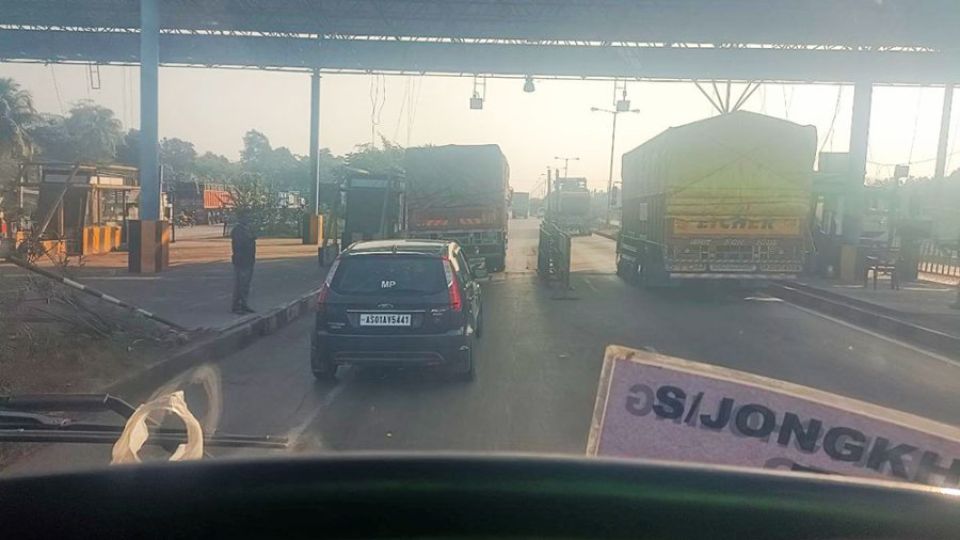December 27, 2024
SAMDRUPJONGKHAR – Bhutanese traveling between the border towns of Samdrupjongkhar, Phuentsholing, Gelephu, and Samtse via India’s Assam Highway are reeling under the burden of double toll charges, a result of ongoing malfunctions in the FASTag system.
FASTag is a prepaid rechargeable tag service that allows drivers to make automatic payments for tolls without having to stop or wait in a queue. FASTag has been out of service at the toll plazas along the highway for over three months now.
This technical failure has left Bhutanese drivers paying cash and incurring penalties despite having sufficient FASTag balances.
While the standard toll fee is INR 105 for medium-sized vehicles, Bhutanese commuters land up paying double the amount, including penalties imposed for not using FASTag.
There are five toll plazas along the highway between Samdrupjongkhar and Phuentsholing, and each charge different toll fee based on vehicle size.
For Tshering Tobgay, a daily bus driver on the Samdrupjongkhar-Phuentsholing route, using the Assam Highway has become increasingly expensive. “I have lost INR 2,000 in unused balance alone.”
With thousands of vehicles impacted, the cumulative financial loss to Bhutanese commuters is substantial, causing a dent on the country’s INR reserves. For example, if 3,000 vehicles each experience a loss of INR 2,000 balance due to issue with their FASTag, the total financial loss for Bhutanese people would amount to INR 6,000,000.
According to the Samdrupjongkhar International Check Post, around 5,500 vehicles ply these routes daily.
Trucker Sonam Wangchuk, who used to pay INR 2,300 per trip now shells out INR 4,600. “This is daylight robbery. We should be charged the same as the Indian vehicles,” he said. “The government needs to seriously look into this matter.”
Kuensel found out that six-wheeler vehicles are charged INR 3,090, with half of the amount constituting a penalty for non-compliance with the FASTag rule. Heavy vehicles like a 10-wheeler land up paying more than Nu 8,000 in toll fees for a trip.
“Another major issue is the difficulty in obtaining INR, despite the Royal Monetary Authority facilitating it just once a year,” said taxi driver Gado Tshering.
Another taxi driver Dawa Singye said, “We are not against paying tolls to use the roads. All we ask is to be charged the correct rate.”
Truck drivers and exporters who rely on these routes to transport goods fear that the escalating costs will undermine the sustainability of their operations.
“With every additional fee, it becomes increasingly difficult for drivers to manage expenses, repay loans, and sustain their businesses,” said exporter Rinchen Dorji. “This issue needs immediate attention.”
The Bhutan Exporters Association has formally appealed to the Ministry of Industry, Commerce and Employment, the Ministry of Home Affairs, and, as a last resort, the Ministry of Foreign Affairs and External Trade on December 9, seeking immediate action to address the FASTag malfunction and the imposition of double toll fees. However, no concrete steps have been taken so far.
The Association has also highlighted that the Royal Monetary Authority’s limited INR allocation is insufficient to cover escalating costs and incidental expenses payable to Indian agencies.


